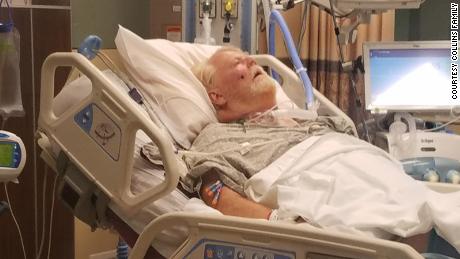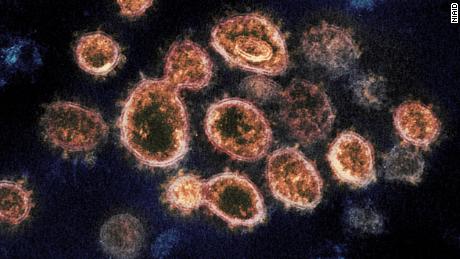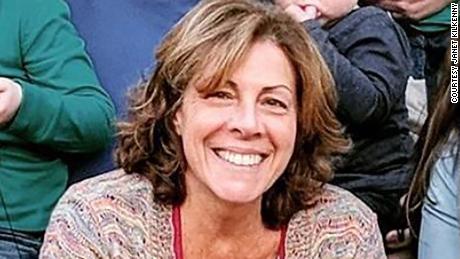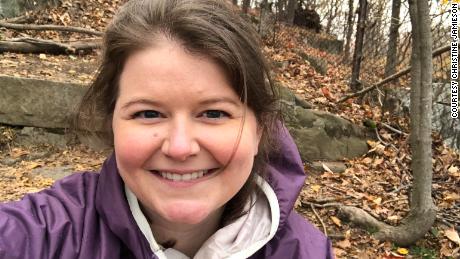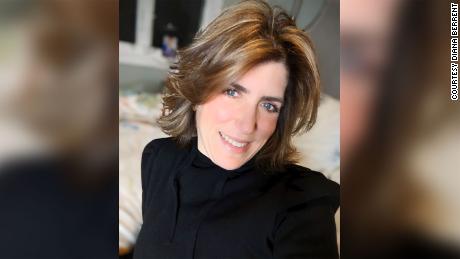And almost every day that doctors work with these Covid long haulers brings new revelations about the syndrome, which manifests itself in a vast array of symptoms in patients of all ages and of every health status pre-Covid.
“We now realize it goes way beyond the standard post viral syndrome,” said Dr. William Li, a physician of internal medicine and founder of the Angiogenesis Foundation, a nonprofit that focuses on the role of blood vessels in diseases.
“These symptoms can last for nine months. And we’re going on to a year now, we’re still seeing new symptoms unfold,” said Li, a vascular biologist who has been researching Covid for almost a year.
More than 100 symptoms reported
The more than 100 symptoms reported by patients include fatigue, headaches, brain fog and memory loss, gastrointestinal problems, muscle aches and heart palpitations. Some have even developed diabetes.
“I just am so amazed by what comes through on a daily basis,” said Dayna McCarthy, who treats Covid long haulers at New York’s Mount Sinai. She hears a long list of symptoms, including brain fog, rapid heart rates and irregular blood pressure.
Mount Sinai was the first in the country to open a clinic for Covid long haulers when it launched its Center for Post-COVID Care in May.
The center has seen more than 1,600 patients, and there’s a monthslong wait for appointments because demand is so high.
Piedmont Pulmonary COVID Recovery Clinic in Atlanta opened in November and has already had about 600 referrals, said Dr. Jermaine Jackson, the medical director.
“We’re learning more and more about this virus from day to day,” he said. “I like to say we’re building the plane as we fly it, or we are putting on the wheels as we drive the car.
It’s not just people who were severely ill and hospitalized with the virus who are still suffering months after getting sick.
“New or prolonged symptoms may occur beyond four to six months among patients with Covid-19, regardless of severity of acute SARS-CoV-2 infection,” the CDC’s Alfonso Hernandez-Romieu said during a webinar for physicians in January.
Physicians and therapists say they are treating people of all ages and those who were extremely healthy before they got Covid — including marathon runners, athletes and trainers.
A second health crisis in the making?
study in Wuhan, China — the site of the first outbreak — found that 76% of patients hospitalized with Covid-19 were still experiencing symptoms six month after their symptoms began.
30% were still reporting symptoms, and more than that reported a worse quality of life than before they got the virus, according to a research letter published Friday.
Most of the people followed –150 out of 177 — had “mild” disease and had not been hospitalized.
Whatever the definitive percentage turns out to be in the long run, the sheer number of long haulers could mean a second health crisis, health experts say.
With more than 110 million cases worldwide — and more than 28 million in the United States — “this could potentially be a second pandemic coming in, being birthed out of the first crisis,” Li said.
The researchers in the nine-month follow-up study wrote that “even a small incidence of long-term disability could have enormous health and economic consequences.”
Treating the symptoms
Currently, there is no specific treatment for long Covid. For now, doctors focus on treatment based on the symptoms reported by a particular patient, especially because patients have varying symptoms.
Doctors are treating long haulers’ symptoms, giving them diagnoses that match the signs, such as encephalomyelitis/chronic fatigue syndrome (ME/CFS) for one of the most common ailments, debilitating fatigue.
The Atlanta clinic refers patients who have symptoms outside their specialty to other specialists, said Jackson, a pulmonologist.
It’s “an evolutionary process,” he said.
At least doctors now know that long Covid is a real thing. Some patients, like Janet Kilkenny, say they had doctors who just dismissed their symptoms and didn’t really believe what they were saying in the early months of the pandemic.
Kilkenny, 62, was working as an occupational therapist in a nursing home when she contracted the virus in April. Though not hospitalized, she was plagued by shortness of breath months later and unable to work a full week.
“I took time off, at least one day a week, and I was literally coming home from work and laying on the couch crying,” she said.
Scans in June showed that she had scarred lungs that were partially collapsed, she said, and a cardiologist found fluid around her heart.
In July, Kilkenny said she went on short-term disability leave. She hasn’t worked since. She and her husband have sold their home and moved in with their daughter.
webinar to help physicians identify the signs and symptoms of long Covid and learn about how these patients are being treated.
Finding support in online groups
Some patients say the long Covid care centers and doctors they’ve seen haven’t really been beneficial.
“For the most part, primary care doctors, cardiologists, neurologists, and even covid recovery clinics set up at major medical centers have not been helpful to me, aside from helping rule out organ damage or easily tested for conditions,” Christine Jamieson told CNN in an email.
She was diagnosed with Covid-19 in late June.
“Eight months later, I am still unable to return to work and I’ve had very few days without severe fatigue,” Jamieson said. “I have over 30 symptoms across several body systems that make daily life almost impossible. I’ve seen more than 20 doctors, undergone hundreds of lab tests and other medical tests, and tried more than 50 medications.”
Still, she said, she has an “amazing care team.”
“I am fortunate to have the resources to see one of the very few ME/CFS specialists in the United States,” Jamieson said. “I am also seeing an amazing speech therapist who helps me navigate life with my cognitive challenges,” a common problem for long haulers that the therapist likened to concussion patients, Jamieson said.
Survivor Corps, founded by Diana Berrent, who says she contracted the virus in March. The group now has more than 150,000 members.
Berrent herself has suffered from long Covid, having a “full symptomatic relapse over the summer,” and went to Mount Sinai’s COVID Care Center and to gastrointestinal doctors and “all kinds of neurologists” because of terrible headaches and deep inner ear pain.
Groups such as Survivor Corps are not only beneficial to long haulers, but also to researchers and doctors who listen to their members, Li said.
Li met Berrent when they were both guests on CNN’s “Cuomo Prime Time,” and the two started exchanging notes. Berrent told him what her group was seeing among survivors at Survivor Corps and sharing the research they were doing.
Li joined Survivor Corps’ medical advisory board “because I wanted to understand this further.”
“For one of the first times in medical history, patients are bringing their symptoms of a new disease to doctors to teach doctors what is actually happening with a new disease,” Li said.
“And that’s really important in today’s connected digital world, where patients are able to come together, organize, and then present their findings to physicians, and then doctors can kind of go back to the tools in our toolbox.”
CNN’s Nadia Kounang and Dr. Sanjay Gupte contributed to this report.

